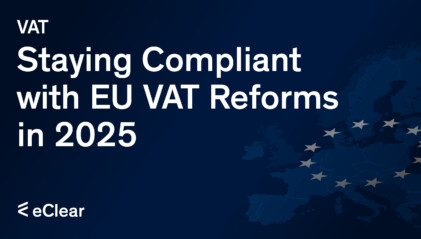The German Federal Association of E-Commerce and Mail Order Business (bevh) reports a significant decline in e-commerce revenues. From April to June 2023, online sales fell by 12.2% to €19.17 billion compared to the same quarter in 2022. The overall sales for the year’s first half are down by 13.7% compared to 2022. However, compared to the first half of 2019, before the outbreak of the COVID-19 pandemic, there is still a 14.7% increase.
The decline is attributed to a series of negative economic data and the initial consumer shock triggered by the outbreak of the Ukraine war. Like many other countries, Germany is in a recession, and the online trade sector is not immune. The only measures currently limiting inflation are expensive ones like the €49 ticket. Cold progression often offsets apparent wage increases. As long as people expect their real wages to decrease and financial burdens to increase, they will think twice before purchasing.
The downturn is noticeable across all online sectors, with the entertainment, furnishings, and clothing clusters suffering the most significant losses. Trade in jewellery and watches, computers/accessories/games, household goods & appliances, and car & motorcycle accessories are also under pressure.
The bevh’s recent member survey reveals a similar trend. Two-thirds of the responding companies report not achieving their planned sales in the second quarter. Only about half of the respondents (51.4%) reported a loss of sales in the second quarter compared to the previous year. The slight deterioration is based on a weak previous year’s quarter marked by the Ukraine war.
The pessimistic business expectations of retailers and the persistently poor economic data for Germany give little hope for an improvement in the business situation in the further course of the year. The association now expects a significant correction and a decrease in sales of more than 5% compared to 2022. Even with an unforeseeable improvement in consumer sentiment in the second half of the year, the previous declines would hardly be recoverable.
EU VAT Changes: What’s Ahead for UK Businesses?

In a move set to reshape the landscape of virtual services, the European Union (EU) is introducing significant changes to the place of supply rules for business-to-consumer (B2C) services, effective 1st January 2025, reports insidermedia.com. These changes will primarily affect services streamed or made available virtually, such as live virtual events and distance learning courses.
Under the current rules, UK providers are subject to the general place of supply rules for B2C services, which stipulate that the supply is taxable where the supplier belongs. However, the upcoming changes will shift the place of supply from where the supplier belongs to where the consumer resides. It’s important to note that these changes will remain unaffected by business-to-business (B2B) supplies.
This shift in rules could lead to potential complications. For instance, a UK business providing live online webinars to individuals in France will, from 1st January 2025, be required to charge VAT at the applicable rate in France and account for VAT to the French tax authorities. This is a departure from the current practice where UK VAT is charged and accounted for on these services.
The implications of these changes for UK and EU suppliers remain uncertain, as the UK’s HM Revenue and Customs (HMRC) have yet to respond. Double taxation is risky if the UK does not adopt the change in Place of Supply rules. Conversely, if neither tax authority requires VAT to be accounted for on the supply, EU suppliers could escape VAT altogether, creating an unfair advantage.
For UK businesses, the EU’s nil threshold for non-established traders means that they will be required to account for VAT from the point of their first sale at the rate applicable in the member state of consumption. This could result in VAT registration obligations in several member states from 1st January 2025 unless businesses use the One-Stop Shop (OSS) simplification. The OSS allows for a single EU-wide registration, enabling businesses to account for VAT on all taxable sales in the EU under a single OSS return.
However, the OSS currently does not permit input tax deduction, meaning that costs incurred in the EU will not be recoverable. For most UK suppliers providing virtual services, costs will likely be incurred in the UK, and input tax will be recoverable via a UK VAT return. If VAT is incurred on costs in the EU, there is scope to recover the VAT under the 13th Directive refund procedure.
With these changes on the horizon, businesses are advised to start preparations now to ensure a smooth and compliant transition come 1st January 2025.
EU-New Zealand FTA to Boost Trade by 30%

The European Union and New Zealand have inked a landmark free trade agreement (FTA) expected to deliver significant economic benefits for the EU. The deal will slash around €140 million in duties for EU companies annually from its first year of implementation. As a result, bilateral trade is projected to surge by up to 30% within a decade, potentially boosting EU annual exports by up to €4.5 billion. EU investment in New Zealand could also see an 80% increase.
This FTA is not just about economic gains; it also sets a new standard for sustainability commitments in trade agreements. Both parties have pledged to uphold the Paris Climate Agreement and core labour rights, underscoring the deal’s commitment to just and green growth.
The agreement will now be sent to the European Parliament for approval. Once ratified by both the EU and New Zealand, the deal will be enacted. This FTA is part of the EU’s open trade strategy, which aims to strengthen economic security through partnerships. The deal with New Zealand also signifies the EU’s intensified engagement with the Indo-Pacific region.
The FTA will provide new business opportunities by eliminating all tariffs on EU exports to New Zealand, opening up key sectors in the New Zealand services market, ensuring non-discriminatory treatment to EU investors, and improving access for EU companies to New Zealand government procurement contracts. It will also facilitate data flows, provide predictable and transparent rules for digital trade, and maintain high standards of personal data protection.
The FTA will offer EU farmers better opportunities to sell their produce in New Zealand. Tariffs on key EU exports such as pig meat, wine, and chocolate will be eliminated. The FTA will also protect a complete list of EU wines and spirits and 163 of the most renowned traditional EU products in New Zealand.
The EU-New Zealand FTA is the first to integrate the EU’s new approach to trade and sustainable development. Both sides have agreed to ambitious commitments covering various issues based on cooperation and strengthened enforcement. The deal also liberalises environmental goods and services at entry into force.
France Boosts Green Tax Incentives in 2023

France made several significant changes to its VAT system in 2023, focusing on expanding reduced rates, reforming e-commerce VAT, and introducing green tax incentives, reports taxually.com. The reduced VAT rate of 5.5% for COVID-19 protection materials and products, including masks, hygiene products, and protective clothing, has been extended until the end of 2023. This rate will also apply to foodstuffs intended for consumption by food-producing animals and products of agricultural origin, fish, fisheries, and poultry farming.
France has reformed VAT regulations for e-commerce transactions in line with EU directives. From 2023, online marketplaces will be jointly liable for the payment of VAT on sales made by third-party sellers on their platforms. This measure is designed to combat VAT fraud and ensure fair competition among e-commerce businesses.
France is also prioritising environmental sustainability by introducing green tax incentives. The VAT on electric vehicles has been reduced to encourage their adoption, and installing energy-saving materials, such as thermal insulation and energy-efficient windows, is subject to a reduced VAT rate of 5.5%. These changes reflect France’s commitment to both public health and environmental sustainability.
Erdoğan’s Austerity Measures: VAT Upped to 20%

Turkey has announced a 2% increase in its standard VAT rate, effective from 10th July 2023, to combat inflation and stabilise its economy, reports vatcalc.com. The increase, which raises the standard rate from 18% to 20%, comes alongside a rise in the bank consumer loan charge from 10% to 15%.
The move follows a series of austerity measures introduced by President Erdoğan after his re-election last month. These measures, aimed at curbing inflation and preventing a currency collapse, were triggered by a global economic slowdown, unusual economic polls, and recent earthquakes. In June, the central bank increased the country’s key interest rate from 8.5% to 15%, and further gradual monetary tightening is expected until the inflation situation improves.
The VAT increase also extends to the reduced VAT rate, which will rise from 8% to 10%. However, the 1% reduced rate on newspapers, journals, and foodstuffs will remain unchanged.
These changes come at a time when Turkey’s economy is showing signs of recovery. The country’s trade deficit contracted by 35% in June as imports and exports declined, indicating a potential slowdown in economic activity. This shift towards more orthodox economic policies is a positive sign following President Erdoğan’s re-election victory.
However, the impact of these changes on Turkish businesses and consumers still needs to be seen. The increase in VAT and bank consumer loan charges could lead to higher costs for businesses and individuals, impacting consumer spending and economic growth. As such, the success of these measures in stabilising Turkey’s economy will likely depend on a delicate balance between fiscal austerity and economic growth.
Personalisation Paradox: Consumers Want It, Fear Data Sharing

European consumers are increasingly expecting personalised experiences from brands. Still, they remain wary about sharing their data, according to the fourth annual State of Personalisation Report from Twilio. The report reveals a ‘Catch 22 ‘situa22’n, where data enables personalisation and enhanced communications, is met with consumer scepticism.
Over half of European consumers say they will become repeat buyers after an excellent, personalised experience. At the same time, 49% will tell a friend or family member, and a third will join the brand’s programme. However, an impersonal experience can deter many consumers, with 36% less likely to purchase, 19% stopping shopping with the brand entirely, or 18% buying from a competitor instead.
Despite the benefits of data sharing, there’s a difference in consumer confidence, with over a fifth (22%) of European consumers feeling less comfortable about their data being used for personalisation purposes than last year. This highlights the importance of brands being transparent with data collection and usage and communicating data-sharing benefits to consumers.
The report also reveals that 36% of European consumers feel personalisation has become less targeted over the last 12 months. With the phasing out of third-party cookies, brands are encouraged to consider first-party data as an alternative. This data is consensually given to businesses by customers or generated by their interactions, providing the most up-to-date and valuable insights for building personalised experiences.
The report suggests that brands can rebuild consumers’ data exchange by emphasising value exchange, being transparent, prioritising data privacy, protection and ethics, giving consumers autonomy, and only retrieving the data they truly need.







